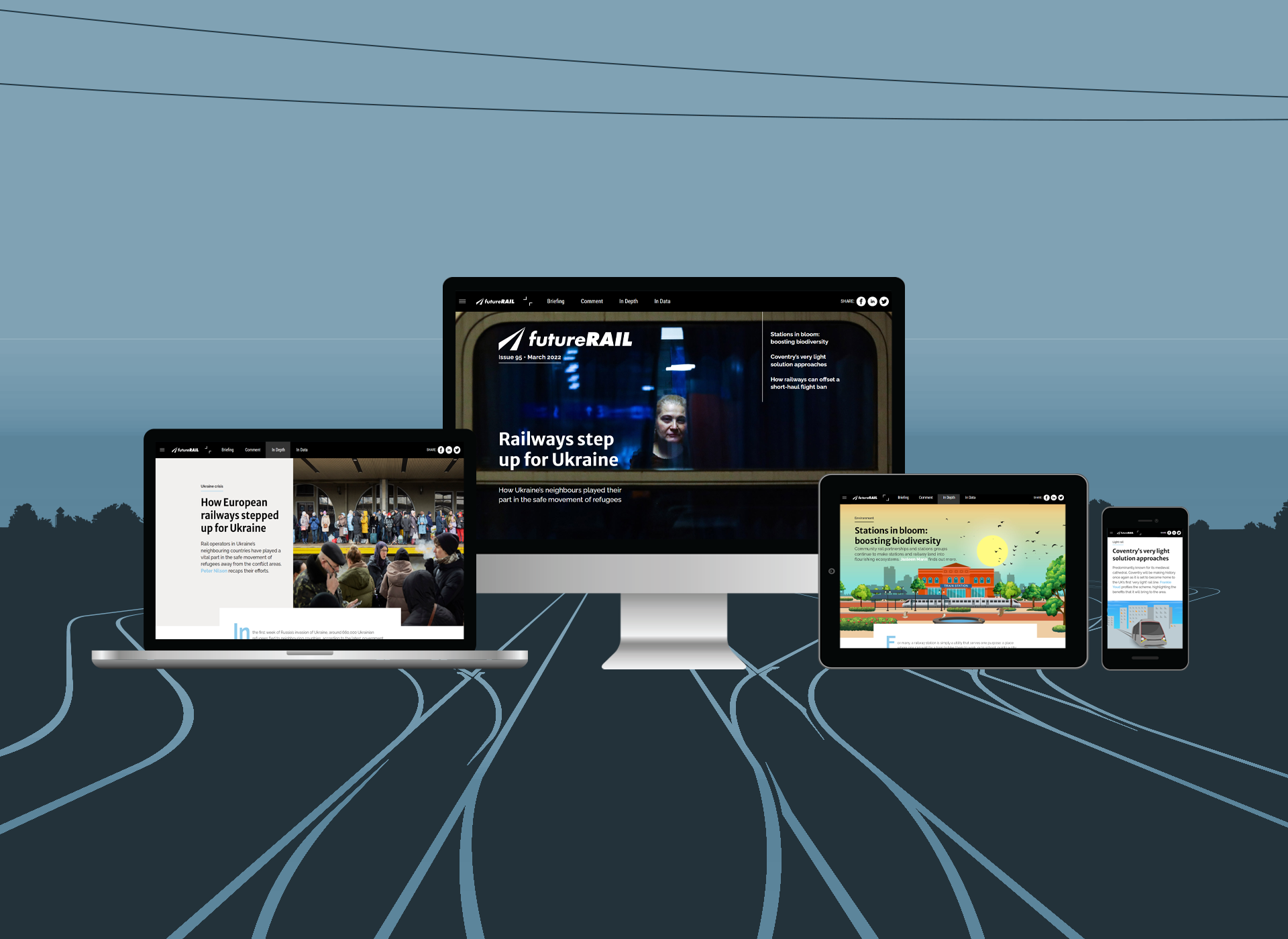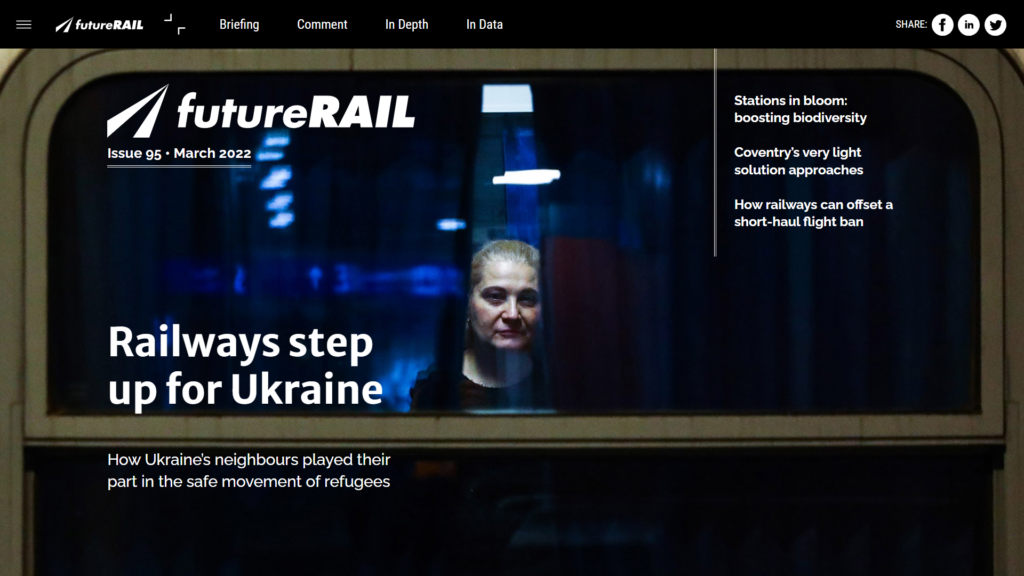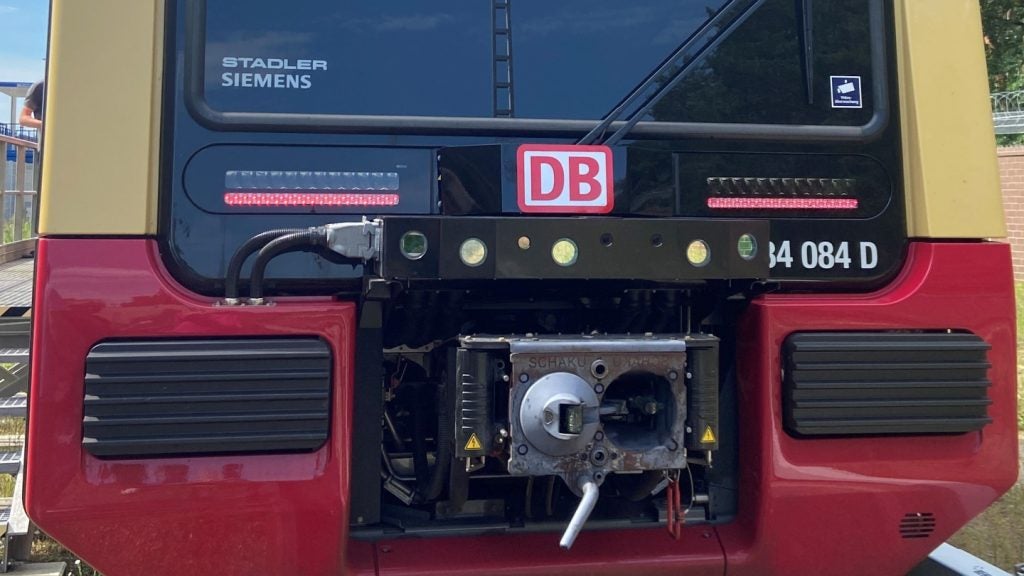
Before getting into the focus of this issue, it’s important to acknowledge the horrific aggression shown by Vladimir Putin and his Russian regime to Ukraine over the last few weeks. Millions of people have been displaced from their homes, and many of these homes have been destroyed.
Whether you are on desktop, tablet, or smartphone, you can read the magazine for free online.
An invasion founded on propaganda is turning into a humanitarian crisis that will rock Europe and send shockwaves further around the world. In this issue, we detail how Ukraine’s neighbouring countries used their rail networks to help migrants out of the warzone in the initial week of the conflict, as well as highlighting the immediate impact of the invasion on the Ukrainian and Russian networks.
We look at how community groups are improving their local stations through community projects. A decline in biodiversity is a worrying trend, but these groups are doing their part with community gardens, allotments, and spaces at stations. We must take every advantage to save the bees, and these station friends are certainly doing their part – not to mention making their stations look lovely.
We also highlight a recent report from Greenpeace that states one-third of the busiest short-haul flights in Europe can be replaced by trains with journey times under six hours. This doesn’t sound outlandish – the European high-speed rail network is still expanding – and has led to some calling for a ban on short-haul flights.
Elsewhere, we profile Coventry’s very light rail project, the first in the UK, learning why it’s definitely not a tram. We also speak with UK charity The Talent Foundry about encouraging the next generation to pursue a career on the railways, find out about the future of internet connectivity on trains with evo rail, and talk to Opengear about the importance of automation in rail’s IT infrastructure.
For this, and more, read on. You can also follow us @FutureRail_Mag.
Peter Nilson, editor

In this issue
How European railways stepped up for Ukraine
Rail operators in Ukraine’s neighbouring countries have played a vital part in the safe movement of refugees away from the conflict areas. Peter Nilson recaps their efforts.
How well do you really know your competitors?
Access the most comprehensive Company Profiles on the market, powered by GlobalData. Save hours of research. Gain competitive edge.

Thank you!
Your download email will arrive shortly
Not ready to buy yet? Download a free sample
We are confident about the unique quality of our Company Profiles. However, we want you to make the most beneficial decision for your business, so we offer a free sample that you can download by submitting the below form
By GlobalDataStations in bloom: boosting biodiversity
Community rail partnerships and stations groups continue to make stations and railway land into flourishing ecosystems. Jasleen Mann finds out more.
Coventry’s very light solution approaches
Predominantly known for its medieval cathedral, Coventry will be making history once again as it is set to become home to the UK’s first ‘very light’ rail line. Frankie Youd profiles the scheme, highlighting the benefits that it will bring to the area.
How rail can offset a short-haul ban
Research by OBC Transeuropa suggests that one-third of the busiest short-haul flights in Europe can be replaced by trains with journey times under six hours, and has suggested a ban on short-haul flights. Jasleen Mann explores the plausibility of a ban.
Educating the next generation of railway workers
To encourage young people to pursue a career in rail, educational charity The Talent Foundry has started a programme with Network Rail. Frankie Youd talks to Cate Smith, head of programmes at The Talent Foundry to find out more.
Next issue preview
Goals set for the growth of rail freight have been labelled as “too ambitious” by the Association of German Transport Companies. The goals aim for a 25% share of the country’s freight to be moved via rail by 2030, which the association has stated will be difficult to reach due to numerous factors.
The country has had to cope with numerous bottlenecks brought about by ongoing construction projects, which the association has acknowledged as “necessary, but hindering” when it comes to freight growth in Germany.
We learn more in our next issue, as we ask whether Germany can hit its freight targets in time, and where it stands compared to the rest of Europe.
Would you like to be notified when a new issue of Future Rail is out? Sign up for email alerts here!
We will only use your email address to let you know when a new issue is available. Future Rail is published bi-monthly.






